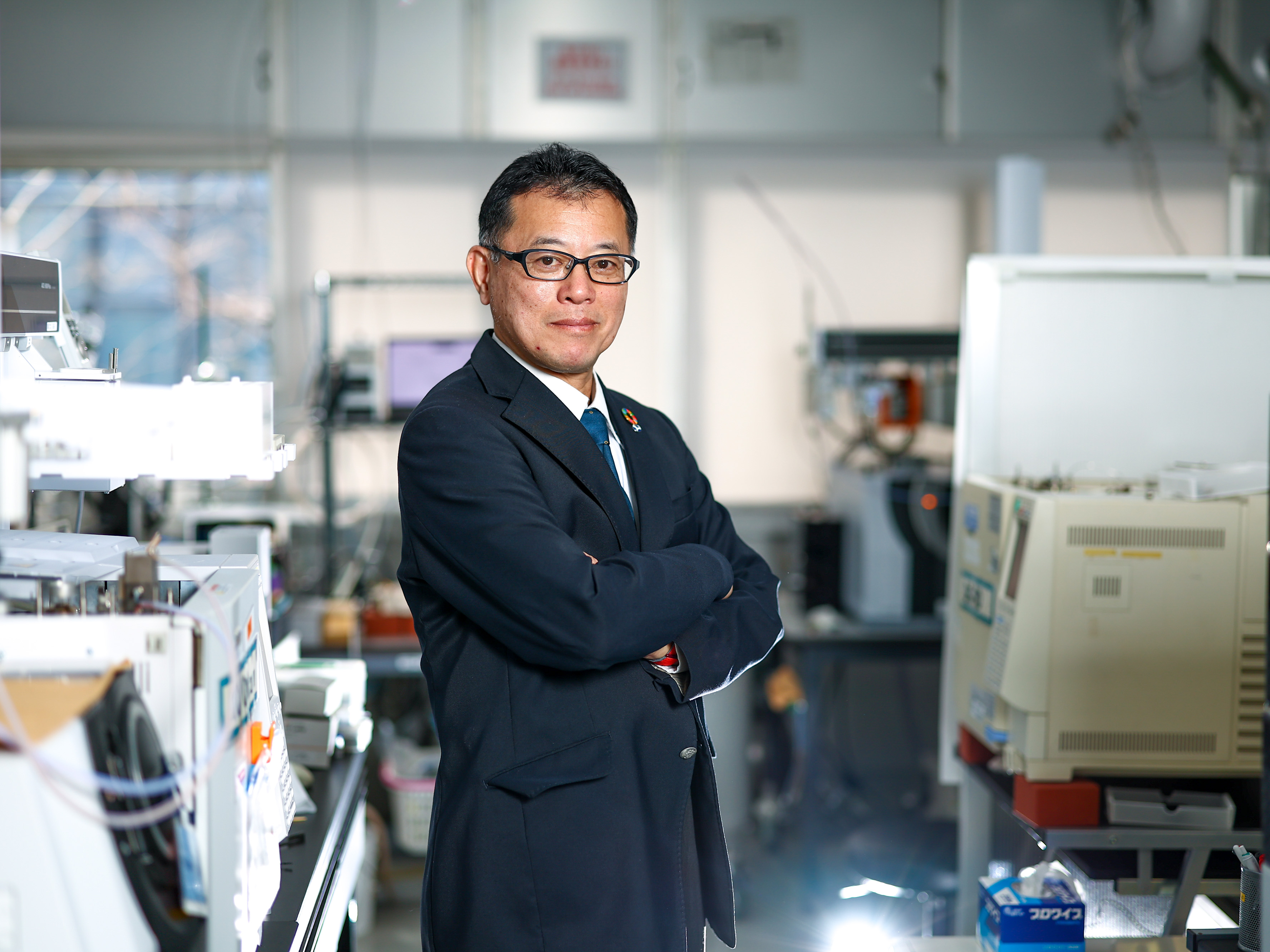
Professor Eiichiro Fukusaki, Director, Industrial Biotechnology Initiative Division, Institute for Open and Transdisciplinary Research Initiatives/Professor, Graduate School of Engineering
"Challenging the limits of technology and knowledge to achieve a sustainable industrial society"
Dr. Eiichiro Fukusaki is Director of the Industrial Biotechnology Initiative Division at Osaka University’s Institute for Open and Transdisciplinary Research Initiatives (OTRI). His initiative takes an interdisciplinary approach that utilizes new technologies to address food safety through reduction of food loss and waste and develop biotechnology for biologic drugs, vaccines, and iPS cell production. Dr. Fukusaki emphasizes the critical role of humanities and social sciences in this project: “Applying advanced technology to tackle issues such as food loss and waste is not simple. While people may very well understand its importance, they also have the right to buy what they wish to eat and dispose of it. Indeed, this issue requires multidisciplinary studies to raise people’s level of attention to the environment and ethical consumption.” The ultimate goal of this project is to realize a society where people are happy and connected in an environmentally-friendly manner as well as a safe food cycle.

The only one of its kind – A unique approach deeply rooted in the region
Dr. Fukusaki is a world-leading researcher in food metabolomics, which analyzes metabolites and compounds in food. The majority of researchers in metabolomics place their focus on medical fields, but Dr. Fukusaki has been developing technologies in food metabolomics and advancing research with his unique and prominent ideas. In addition to food safety, he also pursues the science of “deliciousness,” and has published a number of world-first studies that thoroughly analyze the taste of tropical agricultural products.
Indonesia is a country rich in fruit production, and Dr. Fukusaki has a long-standing collaboration with the country in both his research projects and in education. While Indonesia has the largest population in Southeast Asia, this also comes with a large amount of food loss per capita.
When the market price falls due to overproduction of a crop, the crop is not shipped and is discarded because it is not profitable. “If we could harvest and store the crop for even one week, the market price would change, and the crop would not be thrown away. We will not be able to solve this problem unless we can make sure that stakeholders do not lose money and that the environmental impact is reduced," Dr. Fukusaki mentions. If the technology for extending the life of food products, including storage, can be proven in Indonesia and Japan, "we would like to apply it worldwide." In this sense, he believes that research that "listens to the voice of food" is a "key technology" for reducing food loss.
In recognition of his contributions to the development and dissemination of food metabolomics technology in Asia, Dr. Fukusaki was selected as the third individual from Japan to receive an honorary lifetime fellowship from the International Society for Metabolomics in 2019, an outstanding achievement that filled him with pride for being the “only one” in the world while also cementing the uniqueness of his research.

Research for education – “Teaching is the best way to learn”
A world leader in food metabolomics, Dr. Fukusaki declares that his commitment to research is for education. The reason why he first chose metabolomics for food rather than for medical applications is also for education, as food is more suitable for students who aim to complete their research projects within a limited period of study in graduate school. In this new academic year, many talented individuals from Indonesia, Malaysia, Vietnam, Thailand and other nations from around the world will once again gather at his laboratory, welcomed by beautiful cherry blossoms as they begin the pursuit of both their own goals and the ultimate goal they all share: a happy and connected society for all people.
Industrial Biotechnology Initiative Division, Institute for Open and Transdisciplinary Research Initiatives: http://sangyobio-eng.jpn.org/
Publications: https://www.fukusaki-lab.com/ye-ji/publication/original-article
Text: Saori Obayashi/Edit: Christopher Bubb